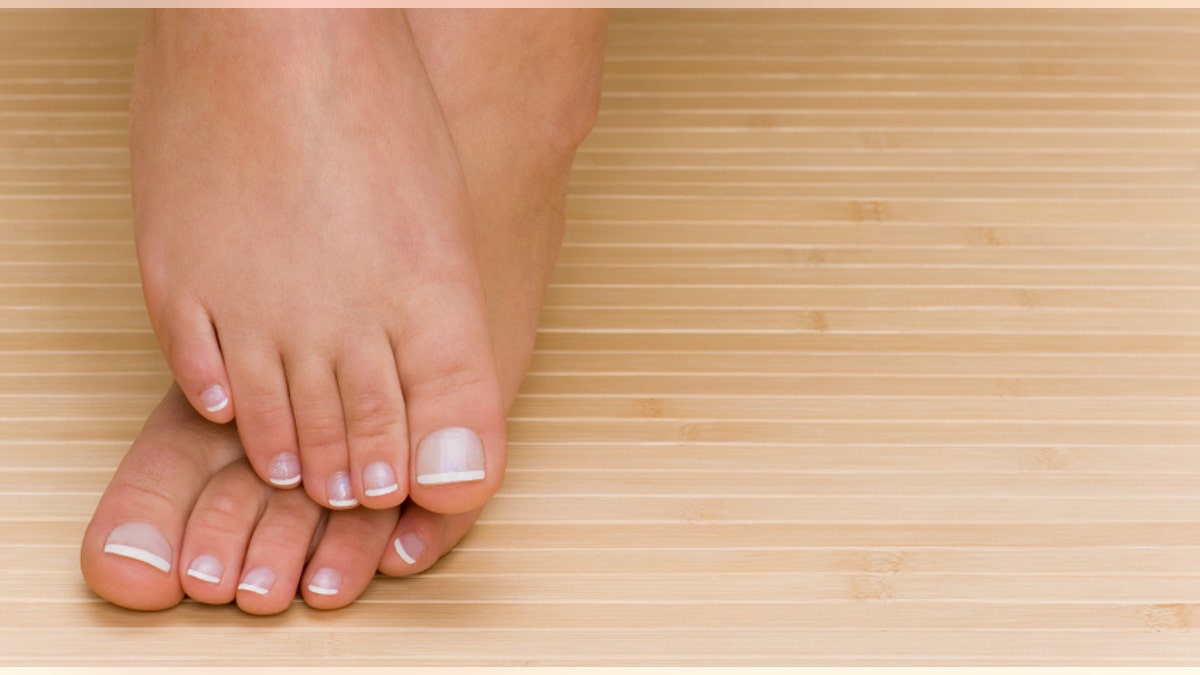
Medizinische Fusspflege (Christoph Hähnel)
Since the beginning of time, humans have had a constant interaction with the earth. Our ancestors would come in contact with the earth's surface on a daily basis: walking, hunting, gathering food and water, communing, playing, relaxing, and more. Nearly everything they did required a connection with the earth.
Today, in our industrialized world, many people go days, weeks, or even longer without coming in contact with the surface of the Earth itself. We are cooped up in our homes or offices, spending more time indoors consuming technology and less time interacting with the source of all that technology. Sure, we may walk outside to get into our cars, but most of us wear nonconductive rubber-soled shoes that ensure our bodies never get that intimate connection. We rarely touch the ground, rarely touch a tree, and rarely touch the source that creates every cell in our bodies.
Scientists are discovering that this is having a huge impact on our health.
More: 50 Ways to Sleep Better Tonight
Currently, more than 90 percent of physician visits are for stress- and inflammatory-related issues. Stress and inflammation go hand in hand and are a huge undercurrent in the vast majority of diseases. Researchers at Emory University School of Medicine in Atlanta have also found that poor sleep quality is intimately related to inflammation. It may sound a little strange, but touching the earth may be the biggest key to eliminating our issues with chronic inflammation.
Renowned cardiologist Dr. Stephen Sinatra, bestselling author of “Health Revelations from Heaven and Earth,” had this to say: "Reduction in inflammation as a result of earthing has been documented with infrared medical imaging and with measurements of blood chemistry and white blood cell counts. The logical explanation for the anti-inflammatory effects is that grounding the body allows negatively charged antioxidant electrons from the earth to enter the body and neutralize positively charged free radicals at sites of inflammation. Flow of electrons from the earth to the body has been documented."
More: How the Big 'O' Impacts Your Sleep
A study published in 2004 looked at the biological effects of grounding the human body during sleep as measured by cortisol levels and subjective reporting of sleep, pain, and stress. The study found that the patients who were grounded during sleep had reduced nighttime levels of cortisol and an overall normalization of cortisol secretion during the day. Remember, cortisol is the arch nemesis of sleep. If your cortisol levels are off, your sleep will be off. Subjective reporting by the study participants also indicated that grounding during sleep improved sleep quality, reduced pain, and lowered stress.
Getting yourself grounded can have a life-changing impact on your sleep quality. Now, I'm not implying that you need to go camping outside every night just to get all these benefits. Today you can utilize incredible earthing technology that brings the benefits of the earth's energy right into your home.
I've been using an earthing mat under my desk and sleeping on earthing sheets for about seven years. These are well-designed products that can be connected to a grounding rod outside your home, or easily into the grounding plug you'll find in most electrical outlets. They safely and effectively deliver the free electrons from the earth right to you, and all you need to do is touch them with any part of your body. The above sleep study utilized grounding products to connect the test subjects with the earth, which triggered all of the impressive results they received.
More: How the Most Common Sleep Positions Affect Your Health
The great news is that you don't have to be a world-class athlete to enjoy these types of benefits for yourself. Whether or not you decide to utilize these advancements in grounding technology, it's absolutely critical to get your body in contact with the earth on a regular basis to displace the positive charge you're carrying; to absorb free electrons to improve your recovery, heart health, and hormones; and, most important, to get a great night's sleep.








































